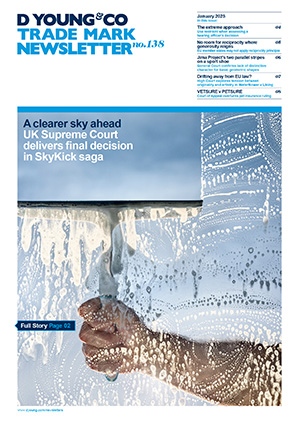Compass Comms v Sanctuary Personnel: relaxation of cause of action estoppel in UKIPO proceedings?
The applicant, Sanctuary Personnel Limited, had previously brought a cancellation action against the mark SOCIAL WORK NEWS under sections 3(6) and 5(4) Trade Marks Act 1994, which was dismissed on 23 May 2023.
On 12 June 2023 Sanctuary Personnel brought this new cancellation action under sections 3(1)(a)-(c) of the Trade Marks Act 1994. The hearing officer refused to strike out proceedings for cancellation on absolute grounds for abuse of process, and the registered proprietor, Compass Comms Limited, appealed to the appointed person.
The principle underlying the argument in this case is that there should be finality in litigation, and therefore if a party brings one set of proceedings it will be barred from bringing further proceedings pursuing different arguments if it could and should have made the relevant allegations the first time around. This has been referred to in the case law as cause of action estoppel or Henderson v Henderson abuse.
The question is whether these new proceedings should be struck out because they “could and should” have been brought as part of the previous cancellation action. Could the point have been raised in the earlier proceedings with reasonable diligence and should it, in all the circumstances, have been raised?
And relax
The appointed person found that proceedings in the registry require a more flexible approach than the position historically taken in the courts for the following special circumstances:
- Registry proceedings are meant to be low cost, quick and relatively informal.
- Public interest in now allowing invalid marks to remain on the Register, particularly where absolute grounds are in issue: the appointed person held that the absolute nature of objections under, for example, section 3 of the Trade Marks Act 1994, combined with the relatively informal Registry procedure give the public interest point more weight in trade mark matters.
- The tribunal needs to be satisfied before relying on the public interest that the objection to validity which is sought to be raised is at least arguable.
- The tribunal will normally want an explanation from the party bringing the second action as to why it was not brought before.
- It is relevant to consider the risk of other proceedings. If as an alternative to a further cancellation action there is the possibility of an infringement action being commenced instead, which a further cancellation action might avoid, then there may be no net saving in the public interest.
- There are other measures which can be taken to alleviate some of the effects of further proceedings in the Registry, such as an award of costs off the scale for the subsequent proceedings.
- Special circumstances which may be relevant to the desire to work justice between the parties.
Decision
Based on the reasons detailed above, while the appointed person was of the view that the doctrine of abuse of process does apply to Registry proceedings, there are countervailing factors specific to this tribunal which need to be taken into account as part of the overall determination of whether they should have been brought the first time around. If it is clear that the repeated proceedings amount to unjust harassment of a party then they should be prevented, but later proceedings are not necessarily abusive. “The crucial question is whether, in all the circumstances, a party is misusing or abusing the process of the court by seeking to raise before it the issue which could have been raised before”.
Subsequent to the bringing of the original cancellation action, Sanctuary Personnel sought to register its own SOCIAL WORK NEWS mark. This application was met with an objection from the Registry on absolute grounds. This prompted Sanctuary Personnel to decide to bring its own objection to Compass Comms’ mark under the same grounds.
When the Registry examined Compass Comms’ mark in 2020 it did not raise any of the absolute grounds for objection which it later raised against Sanctuary Personnel’s mark. This apparently inconsistent approach on the part of the Registry is a decisive factor in this case, which tips the circumstances in favour of Sanctuary Personnel.
Given that the registry did not raise the section 3(1) objections to Compass Comms’ application, it is difficult to see how Compass Comms’ can criticise Sanctuary Personnel’s behaviour as abusive for not originally doing so.
There is public interest in not allowing either Sanctuary Personnel or Compass Comms to monopolise a mark which is otherwise objectionable under absolute grounds. Having taken a preliminary objection to Sanctuary Personnel’s attempt to do so, parity of treatment of the parties also suggests that the Registry should look at the same issue. While the appointed person was satisfied that the point could have been raised in the earlier Registry cancellation action with reasonable diligence, in all the circumstances they were not satisfied that it should have been raised such that to do so now would amount to an abuse. The appeal was dismissed.
In short
While this case indicates a more relaxed approach to cause of action estoppel at the UKIPO, when it comes to invalidity actions, we would advise relying on all necessary grounds at the outset as the safest option.
Case details at a glance
Jurisdiction: United Kingdom
Decision level: UKIPO
Parties: Compass Comms Limited v Sanctuary Personnel Limited
Citation: BL O/0050/24
Date: 25 January 2024

